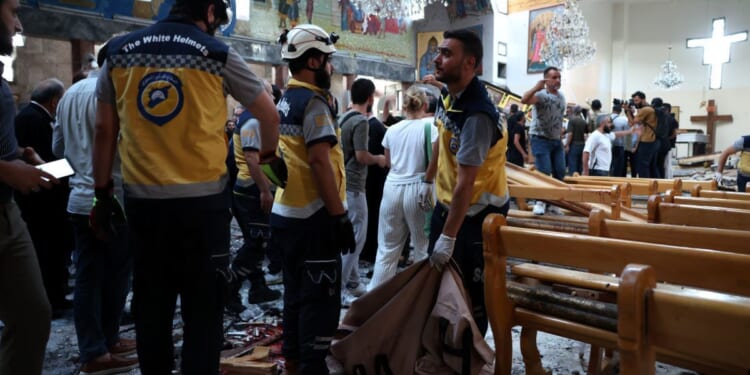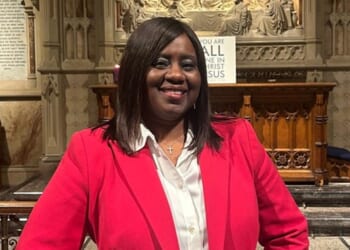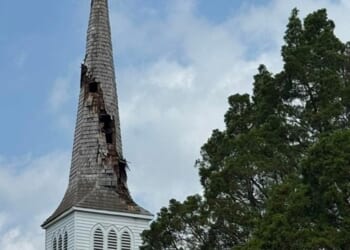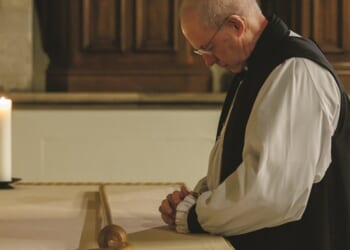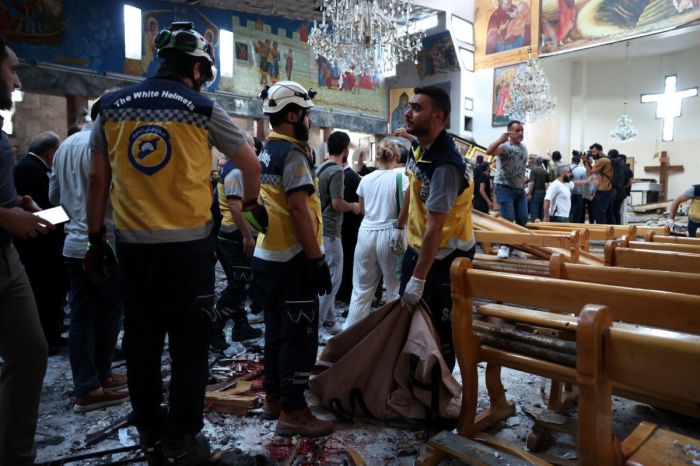
The head of the Syriac Catholic Church in central Syria has warned that Christianity is disappearing from the country. Speaking in Rome, the archbishop said the church is “dying” and called for urgent international intervention to stop the collapse.
Archbishop Jacques Mourad of Homs, Hama and Nabek said the Christian exodus was a result of the country’s “disastrous political and economic situation,” which has driven tens of thousands to flee Syria in search of safety and stability, the charity Aid to the Church in Need reported.
At the launch of ACN’s Religious Freedom in the World 2025 report last month, the charity reported estimates that Christians in Syria have plummeted from about 2.1 million in 2011 to around 540,000 in 2024.
Mourad warned that without political reform and security guarantees, the Church has no way to stop the ongoing wave of migration.
“None of the efforts by the universal Church or the local Church managed to stem the tide of the exodus,” Mourad said, “because the causes are not related to the Church, but rather to the country’s disastrous political and economic situation.”
He argued that a new governmental structure and functioning security system are essential to preventing further flight.
Mourad, who was kidnapped by Islamic State fighters in 2015 and escaped after five months, said the situation for Christians has grown increasingly dire, with ongoing violence and repression continuing under the new government led by President Ahmed al-Sharaa.
The archbishop compared Syria’s deterioration to Afghanistan and said the public should not expect improvements in religious or other freedoms, Crux Now reports.
Mourad also raised alarm over a possible peace treaty with Israel that could transfer control of the Golan Heights. He said such a move would threaten water access for Damascus and described it as a potential act of “enslavement” against the city’s residents.
“Who would accept a treaty such as this?” he asked. “Where are the human rights values that should help ensure that decisions are fair for both parties?”
He urged the international community to adopt a firm stance on Syria’s future and encouraged all institutions operating in the country to coordinate with cultural, academic and legal bodies to rebuild public trust and promote justice. He called for training programs to restore the independence of the judiciary and support civic stability.
ACN’s report launch included a petition to protect Article 18 of the Universal Declaration of Human Rights, which guarantees religious freedom. The petition urges governments to support communities under threat and ensure access to emergency and legal aid for victims of religious persecution.
Since the fall of President Bashar Assad’s regime in December 2024, Syria has seen a surge in violence targeting religious minorities, particularly Christians, Druze and Alawites.
The atrocities are part of a “deliberate campaign of terror,” not isolated incidents, Alawites Association of the U.S. President Dr. Morhaf Ibrahim said at a recent Capitol Hill news conference.
He blamed foreign jihadis, Assad loyalists and militias tied to the interim government for the increase in violence, noting that nearly 1,500 Alawite civilians were massacred along the Mediterranean coast in March. Victims included women and girls abducted and sold into forced marriages or sexual slavery, he said.
Richard Ghazal, the executive director of In Defense of Christians, said extremist groups are now replacing the country’s former religious diversity with radical ideology. He warned that Syria is losing not only a cultural and theological bridge between East and West, but also a “moderating force” that once enabled coexistence.
He called on the U.S. to pressure Syria’s interim leadership, now dominated by Islamic factions, to adopt constitutional safeguards for minorities and establish mechanisms of accountability. He added that the current patchwork of militias must be replaced with professional security forces to restore stability.
Ibrahim urged the U.S. Congress and the Trump administration to respond swiftly.
Ghazal said the survival of Syria’s Christian communities depends on international efforts to enforce religious freedom and protect pluralism through diplomatic leverage and legal frameworks. Without that, he warned, Syria’s Christian population will continue to dwindle.
The city of Antioch, where followers of Jesus were first called Christians, and the road to Damascus, where the Apostle Paul is believed to have been converted, are among the historic sites now threatened by the country’s ongoing conflict and the erasure of its Christian heritage.
A suicide bombing at Mar Elias Church in Damascus killed more than two dozen worshippers on June 22. The attacker, wearing an explosive vest, entered during Sunday morning prayers and opened fire before detonating the bomb.
The incident drew strong condemnation from human rights advocates and Christian organizations. Ghazal said the attack reflects a “sobering reality” for the country’s ancient Christian population. He said Syria was “edging closer to losing a 2,000-year-old spiritual and cultural pillar” with each act of violence and migration.

